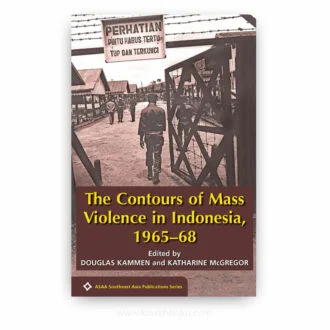Sovereign Women in a Muslim Kingdom: The Sultanahs of Aceh, 1641–1699 shows that female rule was legitimised both by Islam and adat (indigenous customary laws), and provides original insights on the Sultanah’s leadership, their relations with male elites, and their encounters with European envoys who visited their court. The book challenges received views on kingship in the Malay world and the response of indigenous polities to east-west encounters in Southeast Asia’s Age of Commerce. In the seventeenth century, Aceh Dar al-Salam was best known as a staunchly Islamic kingdom in the north of the island of Sumatra and a major trading centre for pepper. Pepper had propelled Aceh’s ascendancy in the sixteenth century, making it Melaka’s successor as the main Muslim commercial centre supplying the Mediterranean, through the Red Sea, rivalling the Portuguese.
Sultan Iskandar Muda (r. 1607–36) ushered in what was deemed as the “golden age” in Acehnese history, when Aceh’s influence expanded and reached as far south as Padang in Sumatra and Johor on the Malay Peninsula. His daughter, Sultanah Safiatuddin Syah, (r. 1641–75) ruled Aceh for 34 years—even longer than her father—but very little is known about her. Widowed at the age of 29 when her husband, Sultan Iskandar Thani (r. 1636–41) died unexpectedly, she succeeded her late husband when she was inaugurated as Sultanah Tajul Alam Safiatuddin Syah three days later. In an unprecedented and never repeated episode in Acehnese history she was succeeded not by one woman ruler, but by three in succession: Sultanah Nur Alam Naqiatuddin Syah (r. 1675–78); Sultanah Inayat Zakiatuddin Syah (r. 1678–88) and; Sultanah Kamalat Zainatuddin Syah (r. 1688–99).
The main question this book seeks to answer is how these queens ruled Aceh for half a century when female rule seemed an anathema in a Muslim and largely patriarchal state, such as Aceh. Furthermore, this unique episode in Aceh’s history happened when the Dutch VOC, Veerinigde Ooost-Indische Compagnie (United East India Company),
and the English East India Company were gradually increasing their commercial hold and flexing their military muscles in the region by interfering in the affairs of indigenous polities. It is curious that in such perilous times Aceh’s male elite placed the fate of the kingdom in the hands of women. Surprisingly, this remains a little known episode in Aceh’s history despite these historical anomalies, and that in the same period the Acehnese kingdom was fending off European interventions as other polities, such as Makassar and Bantam, fell to the Dutch in 1669 and 1682 respectively.











Jessica (Verified Reader) –